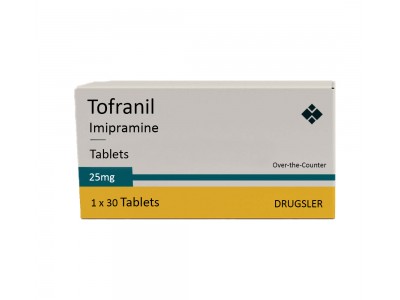Tofranil, also known by its generic name imipramine, is primarily used to treat depression. It belongs to the class of medications called tricyclic antidepressants (TCAs), which work by affecting the levels of neurotransmitters in the brain, particularly serotonin and norepinephrine. By influencing these neurotransmitters, Tofranil helps alleviate symptoms of depression, including low mood, loss of interest in activities, feelings of guilt or worthlessness, changes in sleep or appetite, and thoughts of suicide.
In addition to depression, Tofranil may also be used to treat other conditions, such as:
- Bedwetting (nocturnal enuresis) in children aged 6 years and older, particularly when other treatments have been ineffective.
- Panic disorder, where it can help alleviate symptoms such as panic attacks, anxiety, and avoidance behaviors.
Although Tofranil is effective in treating these conditions, it is generally not considered a first-line treatment for depression or panic disorder due to its potential for side effects compared to newer antidepressants. Instead, selective serotonin reuptake inhibitors (SSRIs) and serotonin-norepinephrine reuptake inhibitors (SNRIs) are often preferred as initial treatments due to their improved safety profile and tolerability.
It's important to note that Tofranil should only be used under the guidance and supervision of a healthcare provider who can monitor its effectiveness and manage any potential side effects. Dosage adjustments and careful monitoring are especially important during the initial phases of treatment and whenever there are changes in dosage.

